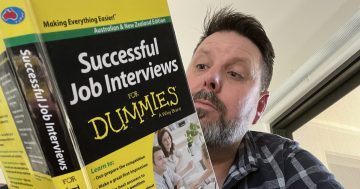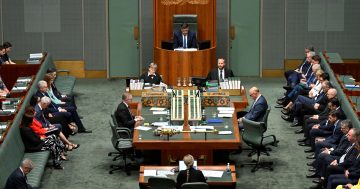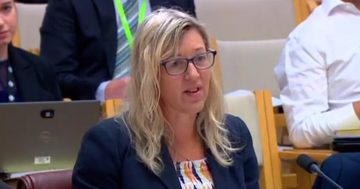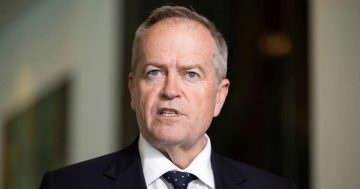By Patrick Williams*
 Have you ever been asked a question in a job interview that just didn’t sit well with you?
Have you ever been asked a question in a job interview that just didn’t sit well with you?
Not everything is up for discussion when sitting down for that all-important talk with a prospective employer.
Here’s a broad look at what prospective employers can and cannot ask you.
Can they ask you your age?
No.
This information should definitely not be asked in an interview.
“If you apply for a job, disclose your age, and are not successful because of this, it may amount to age discrimination if you can prove that age was the reason, or a contributing factor to you not getting the job,” Shine Lawyers’ employment law expert Christie Toy said.
However, it is important to note that exceptions apply where a person’s age may mean they are not able to complete the inherent requirements of the role.
“For example, a hotel employer may refuse to hire someone who is under 18 as they would not be able to work with alcohol,” Ms Toy said.
Can they ask if you have children/planning to have kids?
No.
Your prospective employer should not be asking questions about whether you have children or your likelihood of having kids.
“If you are treated less favourably than someone else because of having or planning to have children, this may be considered discrimination on the grounds of family responsibilities under the Sex Discrimination Act,” Ms Toy said.
Further, a prospective employee has the right under the Fair Work Act, to workplace rights much the same as someone already employed would.
“If an employer is not hiring a female because they may eventually need to give them time off [maternity leave] then this would also be an issue,” Ms Toy said.
“Watch out for tricky ways they might ask you this question.”
“For example, ‘what are you childcare arrangements?’ or ‘where do you see yourself in three years?’”
Can they ask your marital status?
No.
Your marital or relationship status should also be irrelevant to any job that you take or apply for and these questions should not be asked.
This also applies to questions around sexual orientation or gender identity.
Can they ask if you have the right to work in Australia?
Yes.
Employers are allowed to ask whether you are entitled to work in Australia and may require proof of this.
“However, this does not extend to questions around your race or ethnicity.”
Can a prospective employer ask to see your Facebook page?
Chances are they’ve already seen it.
They can ask but there is no requirement to hand over your passwords.
Can they ask if you have a medical condition?
No.
However, currently many jobs such as those in the police service or the Defence Force may require you to undergo a health assessment.
“This is perfectly lawful and questions around your health may also be permissible in such circumstances,” Ms Toy said.
Can they ask why you left your previous place of employment?
Yes.
An employer is entitled to ask questions about your previous employment.
In fact, they are likely to get some of these answers when your application gets to the reference checking stage.
“Questioning why you left your previous place of employment is lawful as it provides context into why or why not you may be suitable to a role,” Ms Toy said.
Can they ask if you follow a religion?
No.
An employer cannot and should not ask whether you follow a religion or a belief, and to do so, and be treated differently as a result, may amount to discrimination on the grounds of religious belief.
There may be some exceptions for religious organisations.
Can they ask if you’ve ever filed for workers’ compensation?
No.
Asking someone whether they have ever filed for workers’ comp may be unlawful in a similar vein to asking about medical conditions.
Can they ask if you have a criminal record?
It varies, depending where you live.
It is not unlawful under Federal law and often depends on the State you are in.
“Many jobs require a criminal history check before offering employment but there are limits on how this information can then be used,” Ms Toy said.
“For example, in Tasmania and Northern Territory it is discrimination to refuse to employ someone based on a criminal conviction if this conviction does not affect your ability to carry out the inherent requirements of the role.”
While asking about a criminal record is not unlawful under the Federal jurisdiction, the Australian Human Rights Commission can investigate any complaints.
Can they ask if you use drugs or alcohol?
No.
This is largely irrelevant and generally not a question that should be asked in interview.
“Nonetheless, drug or alcohol intake may be relevant to some jobs, for example, if you are on medication that affects your ability to drive, this is something that should be disclosed,” Ms Toy said.
“Similarly, in a job that requires long-distance driving or operating heavy machinery it may be prudent to ask whether the person takes any medication that may affect their ability to perform this.”
Mandatory drug testing can be part of workplace policies and you may be bound to comply with them.
Can they ask if I’m a member of a union?
No.
It is unlawful under the Fair Work Act, and some States’ anti-discrimination legislation, to discriminate against someone based on their trade union activity or affiliation.
“This applies to employees and those seeking employment and is another question to avoid in interviews,” Ms Toy said.
So what do you do when you’re asked an unlawful question?
This can be a very difficult position to be placed in.
“You don’t want to ruin your chances and blow the interview by blatantly asking if the question is relevant,” Ms Toy said.
“It may be a good time to, however, reconsider if you really want to work for the employer.”
Employment expert Natasha Hawker, of Employee Matters, says her advice is “always be professional and respectful”.
“I would handle this question in the following way, ‘I know that I am going to sound like I am being difficult and you might even wonder whether I am the candidate for you but integrity is important to me, so I need to let you know that asking that question is inappropriate or illegal but this is what I am prepared to share’,” she said.
* Patrick Williams is an ABC News journalist, working as a digital and social media producer in Brisbane. He tweets at @PatrickWilliams.
This article first appeared at www.abc.net.au.











